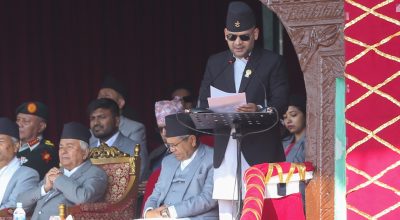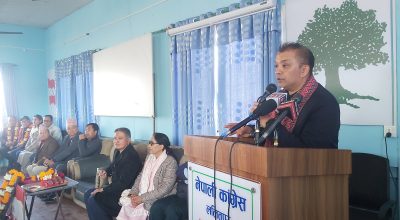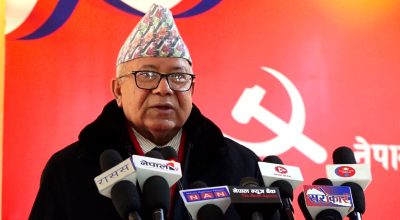
Ramesh Lamsal
Kathmandu, Nov 20: In a bid to unleash the causes of conflict and provide relief and reparation to the victims, the Comprehensive Peace Agreement (CPA) was signed on 21 November 2006, some 18 years ago.
The objective of the peace accord signed between the government and the then rebel force, CPN (Maoist), was to investigate the truth about people seriously breaching human rights and involved in crimes against humanity and bring the perpetrators to justice, thereby keeping peace in the society by normalizing the adverse situation arising out of the armed conflict.
After a prolonged serve-rattling, the government had established a Truth and Reconciliation Commission and a Commission for Investigation of Disappeared Persons in 10 February 2015.
The two commissions were constituted eight and a half years after the agreement between the government and the former rebels. Both the commissions took applications from the survivors and initiated general works related to reparation, but could not take strides on other aspects.
It may be noted that the then Prime Minister Girija Prasad Koirala and CPN (Maoist) Chair Pushpa Kamal Dahal ‘Prachanda’ had signed the 12-point CPA to bring a decade-long armed conflict to the peace process.
On the basis of the same agreement, the promulgation of the Interim Constitution, the two rounds of election to the Constituent Assembly, and the drafting of the Constitution were accomplished.
Yet it is imperative to provide relief, justice and reparation to the survivors that are the backlog of the home-grown peace process, and spell out the causes of the conflict and prevent repetition in coming days.
Recently the government had initiated the process by forming a ‘recommendation committee’ to recommend office-bearers to the Truth and Reconciliation Commission and the Commission for Investigation of Disappeared Families in 12 April 2024.
The recommendation committee headed by former Chief Justice Om Prakash Mishra will recommend the office-bearers of the two commissions. The application process is currently underway. Although the government and the concerned political parties were of the common stance that justice should not be delayed to the victims, there were some doubts about the enactment of the law for a decade.
Since the Transitional Justice Act was enacted on the basis of political consensus last time, the basis for the survivors to get justice has now been prepared.
A total of 63,718 complaints have been registered with the Truth and Reconciliation Commission so far. The Commission had decided to keep 3,000 applications in parking lot.
Likewise, 3,243 complaints have bewen so far registered at the Commission for Investigation of Enforced Disappeared Persons. A total of 2,496 complaints are being investigated at length.
After protracted efforts, the Bill (Third Amendment), 2081 to amend the Commission for Investigation, Truth and Reconciliation of Disappeared Persons Act, 2071 has been brought into force.
Minister for Law, Justice and Parliamentary Affairs Ajaya Kumar Chaurasia said the government was working to conclude the remaining tasks of the peace process at the earliest. “Although many works of the CPA have been completed, the task of providing justice to the victims by investigating the truth has yet to tbe finalized”, he said, adding the task related to transitional justice has already progressed, and the victims will get justice as soon as possible.
CPN (Maoist Centre) chief whip Hitraj Pandey however commented that the peace process was supposed to be concluded in six months as per the agreement, but due to various reasons it could not move ahead as anticipated. #peace #rss #nepal










